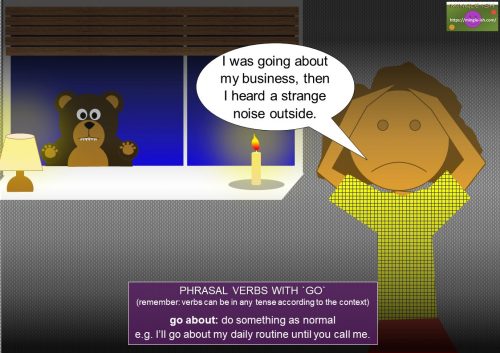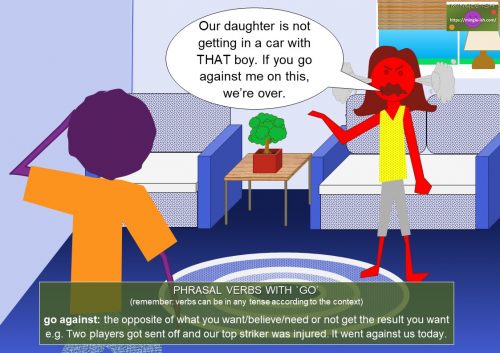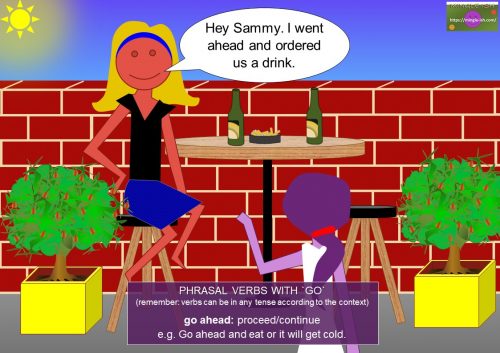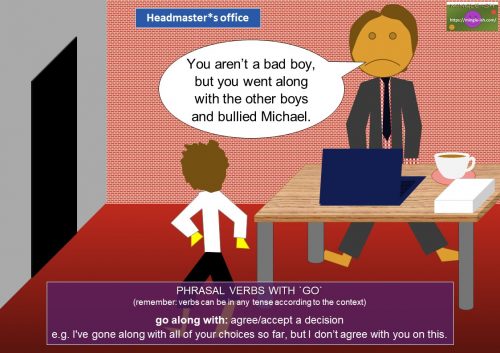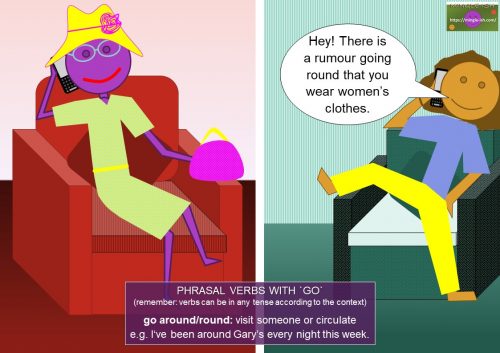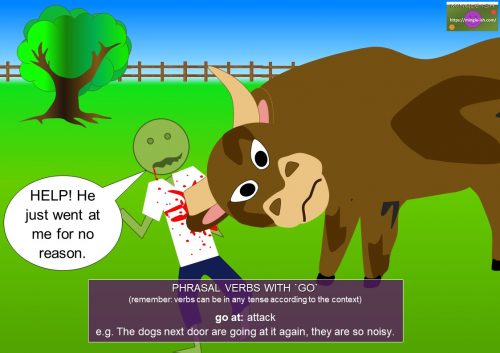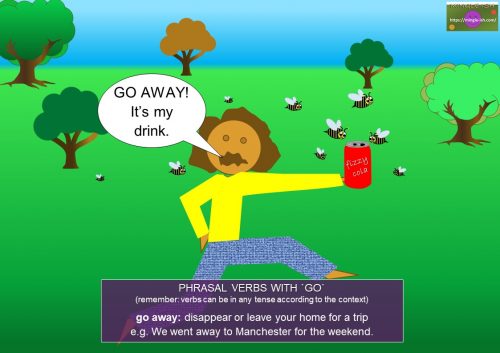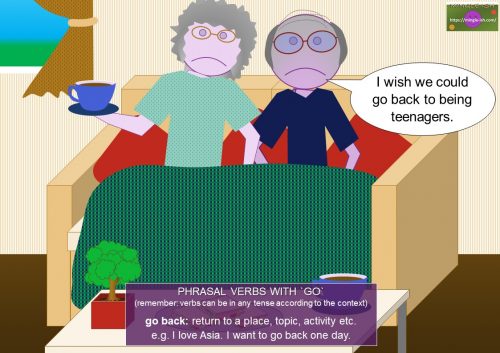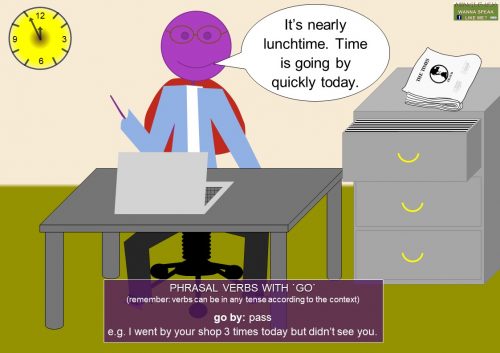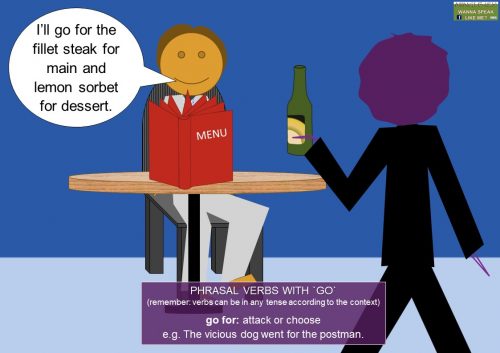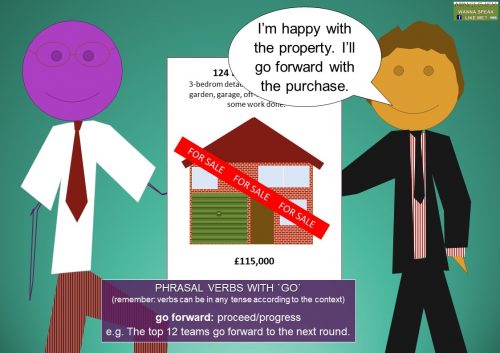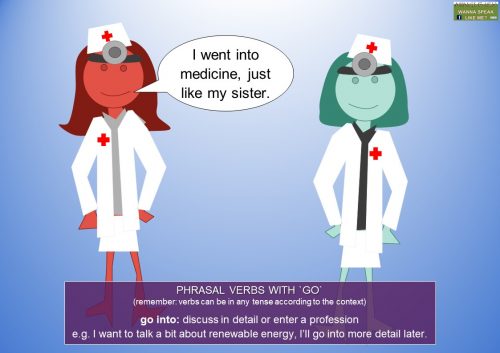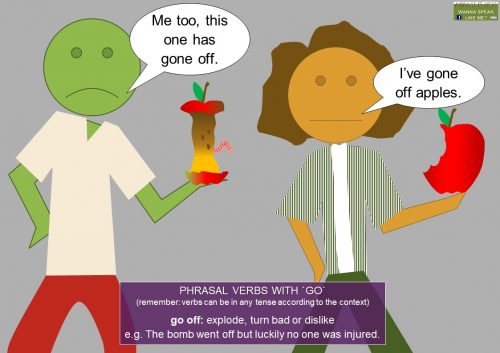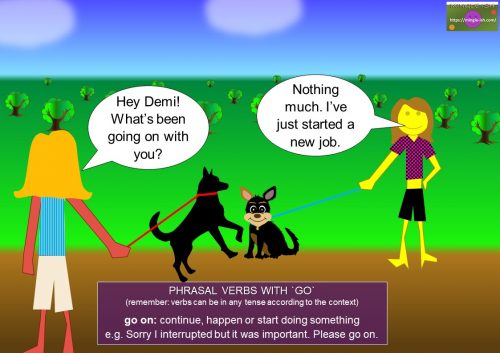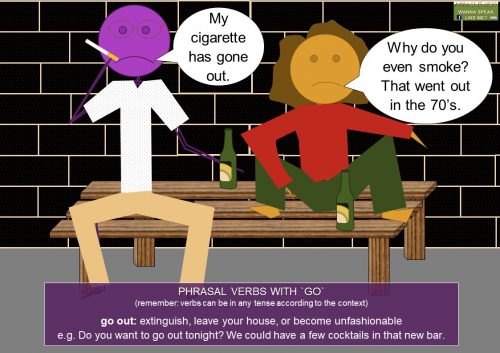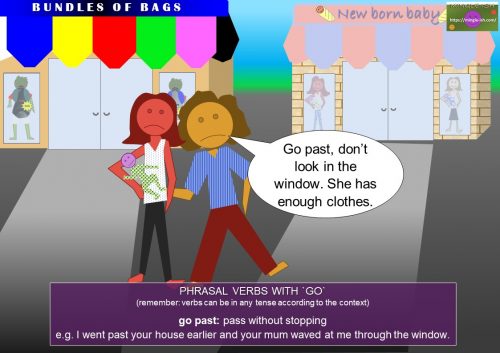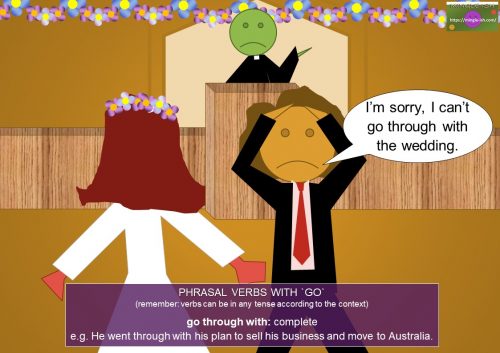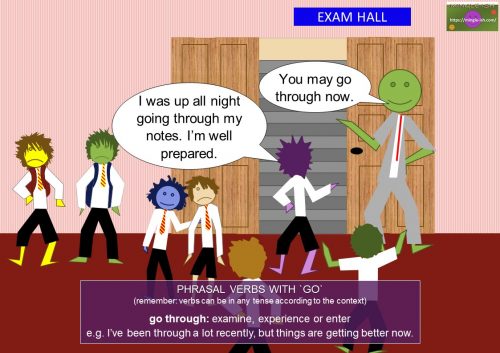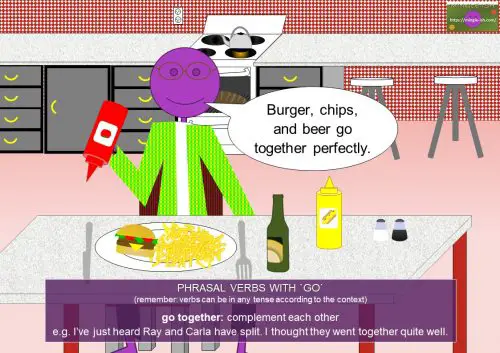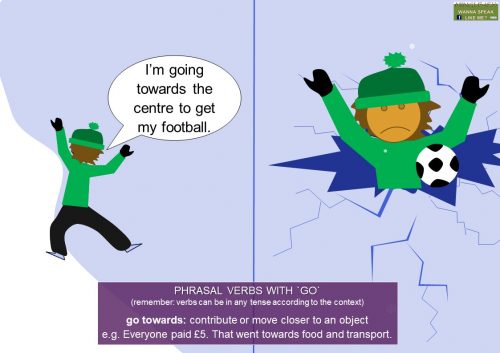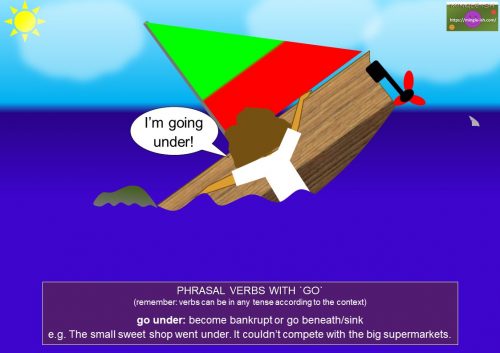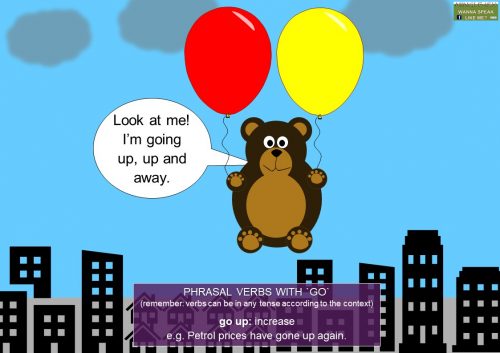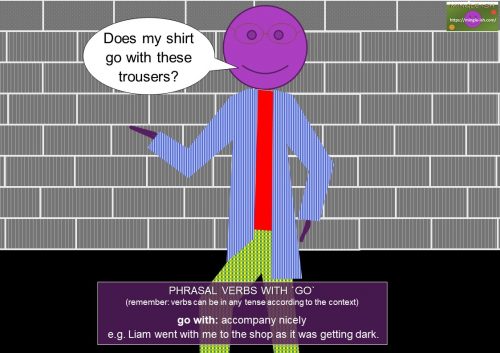The word ‘go‘ can mean many different things. As a verb, the meaning involves movement from one place to another or to leave.
For example:
- I’m going to Lapland on Sunday. (movement)
- Go away! You’re being annoying. (leave)
Go is an irregular verb. The past tense is went and the past participle is gone.
phrasal verbs with go
Phrasal verbs with ‘go’ include:
- go about
meaning – do something as normal
example -I’ll go about my daily routine until you call me. - go across
meaning – move from one side/place to another
example -We went across the field to try and escape the angry farmer. - go after
meaning – chase someone/something
example -My dog went after a rabbit during our walk. He caught it! - go against
meaning – the opposite of what you want/believe/need or not get the result you want
example -Two players got sent off and our top striker was injured. It went against us today. - go ahead
meaning – proceed/continue
example -Go ahead and eat or it will get cold. - go along
meaning – with agree/accept a decision
example -I’ve gone along with all of your choices so far, but I don’t agree with you on this - go around/round
meaning – visit someone or circulate
example -I‘ve been around Gary’s every night this week. - go at
meaning – attack
example -The dogs next door are going at it again, they are so noisy. - go away
meaning – disappear or leave your home for a trip
example -We went away to Manchester for the weekend. - go back
meaning – return to a place, topic, activity etc.
example -I love Asia. I want to go back one day. - go by
meaning – pass
example -I went by your shop 3 times today but didn’t see you.
go down
meaning – decrease/sink
example -The Titanic hit an iceberg and went down like a lead balloon. - go for
meaning – attack or choose
example -The vicious dog went for the postman. - go forward
meaning – proceed/progress
example -The top 12 teams go forward to the next round. - go in
meaning – enter
example -The red wire goes in the back of the screen. - go into
meaning – discuss in detail or enter a profession
example – I want to talk a bit about renewable energy, I’ll go into more detail later.
- go off
meaning – explode, turn bad or dislike
example – The bomb went off but luckily no one was injured. - go on
meaning – continue, happen, or start doing something
example – Sorry I interrupted but it was important. Please go on. - go out
meaning – extinguish, leave your house, or become unfashionable
example – Let’s go over grandad’s tonight, he has made a big fruity cheesecake for us. - go over
meaning – visit someone or review something
example – I went over the contract yesterday, it’s ready to be signed. - go past
meaning – pass without stopping
example – I went past your house earlier and your mum waved at me through the window. - go through
meaning – examine, experience, or enter
example – I’ve been through a lot recently, but things are getting better now. - go through
meaning – with complete
example – He went through with his plan to sell his business and move to Australia. - go to
meaning – allocate
example – All of Mr Crab’s money went to his 3 sons. - go together
meaning – complement each other
example – I’ve just heard Ray and Carla have split. I thought they went together quite well. - go towards
meaning – contribute or move closer to an object
example – Everyone paid £5. That went towards food and transport. - go under
meaning – become bankrupt or go beneath/sink
example – The small sweet shop went under. It couldn’t compete with the big supermarkets. - go up
meaning – increase
example – Petrol prices have gone up again. - go up to
meaning – reach or approach
example – Alan went up to Mandy and asked her out for a date. - go with
accompany nicely
example – Liam went with me to the shop as it was getting dark. - go without
meaning – not have something
example – You’ll have to go without a packet of crisps, I forgot to buy some yesterday.
picture phrasal verbs with go
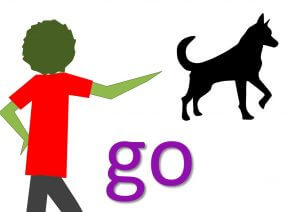
Let’s learn the meaning of the phrasal verbs that contain the verb ‘go’ in more detail and see some examples in use.
Did you know that many idiomatic expressions (idioms) in English also contain a lot of verbs? Just like phrasal verbs, idioms are a major part of the English language (slang in particular). They are used constantly amongst native English speakers and are handy to know and understand.
Now you’ve learnt all the phrasal verbs with go, how about learning the idioms with go too?
